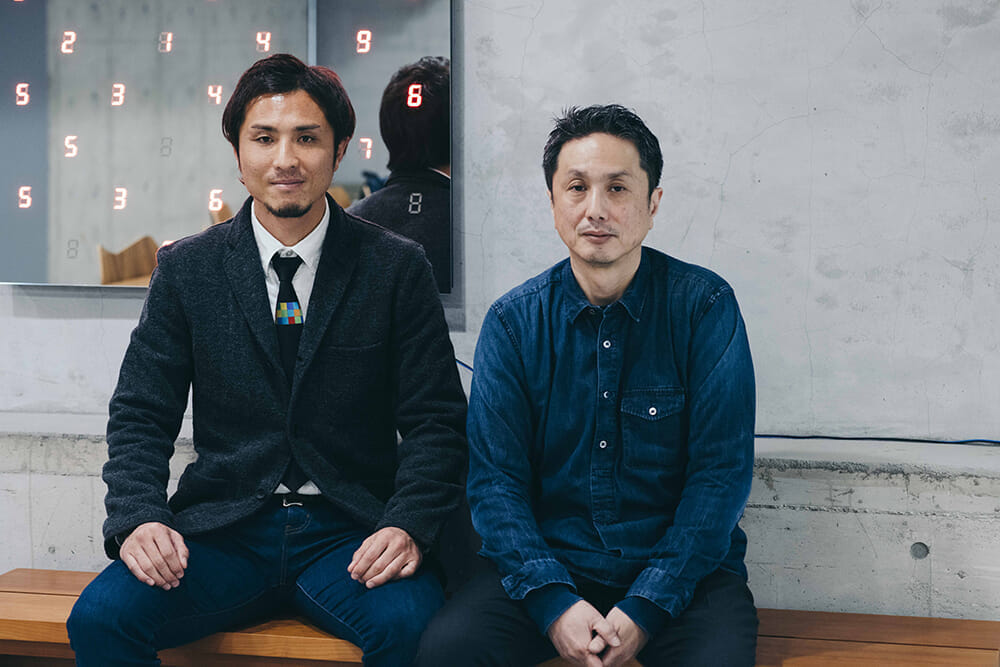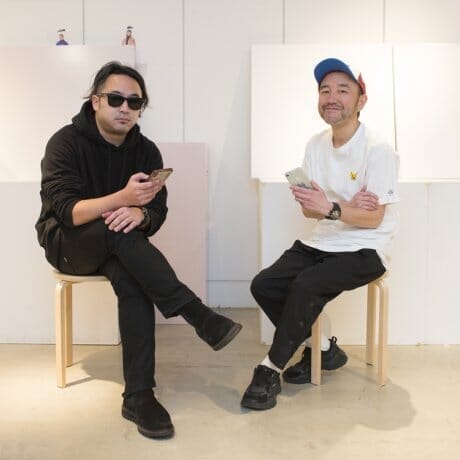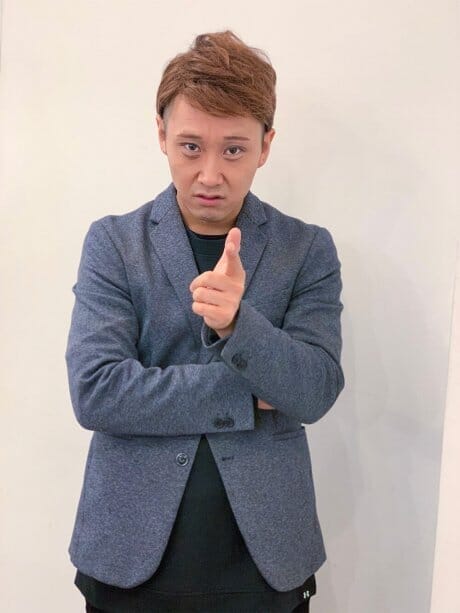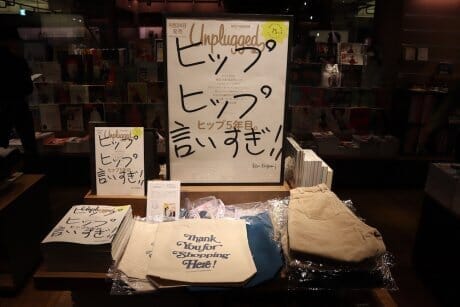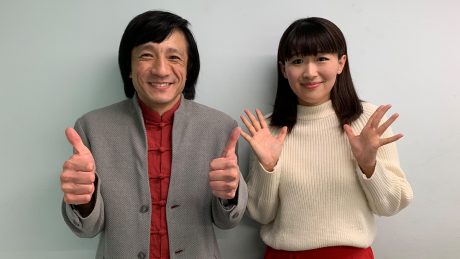In the current issue of Huynem Unplugged Issue 11, long-time reader <SOPH.Representative Hirofumi Kiyonaga's Football Series, "F.I.B.," has come to a temporary halt. In the last issue, we invited Daisuke Nasu, who finished his career as a professional soccer player in the 2019 season and became a YouTube star, to discuss his "second career" as a guest. Here, we present an expanded version of a page from the magazine's series. We are pleased to present an expanded version of the series in this issue of the magazine, which includes an in-depth discussion of football between the two of them, as well as an interview with Mr. Nasu, whose channel now has more than 190,000 registered viewers.YouTube ChannelWe will also introduce you to
Daisuke Nasu Youtube Channel / Popular Uploaded Videos
First of all, let me ask you about your relationship. I understand that you have known each other for a long time, but how long have you known each other?
Nasu:I first met Mr. Kiyonaga through Mr. Naoki Matsuda. I think I first met him when Mr. Matsuda took me to an exhibition of "Sof" after training when I was a member of Yokohama F. Marinos. That was about 17 years ago.
Seinaga:I miss it. All the players used to come to Tokyo after training, and I used to go to the F. Marinos training ground a lot. I used to know players around Nasu's age at that time, including those at other clubs, so in recent years I often get calls from them reporting my retirement (laughs).
Nasu:When I spoke with him after a game at the Vissel Kobe stadium last year, I was deeply moved to realize that he had been watching me play for quite some time since we first met during our days at F Marinos.
How did Mr. Kiyonaga express his gratitude to Mr. Nasu when he was informed of his retirement?
Seinaga:First of all, I would like to say that you had a good soccer life. A soccer player is considered a "○" player when he is able to continue playing after the age of 30, and a "◎" player when he reaches the age of 35. In that sense, Nasu played until 38, and his career and the timing of his quitting were both outstanding, so he has already lived a "triple-maru" soccer life. At the same time, I told him that his life from here on out would be much longer (laughs).
Nasu:Yes, I was very grateful. About two years ago, in my final year with the Urawa Reds, I began to think about retiring, and I actively made time to meet people in industries I had never met before. I started YouTube a year and a half ago as part of my efforts to learn various things so that my life would not end only with soccer.
Seinaga:I was surprised because I didn't think Nasu-kun was the type of person who would try to go out in public on his own. Why YouTube?
Nasu:I was never very good at communicating myself on social networking sites, but as I approached the later years of my career, I slowly began to feel the desire to "communicate something to others" using my experience. When I thought about what would be best for me, I decided that YouTube would be the best place for me, where I could take the initiative in communicating and leave behind a video.
Seinaga:So there was some kind of "changing" in Nasu's mind as he became aware of his retirement.
Nasu:Being able to play for Reds when I was in my 30s was a big deal. Looking back, I used to play soccer only for myself and my family, but during my time with Reds, I had the opportunity to experience the passion of the supporters and people behind the scenes for the club, and I felt even more strongly that "these people are also fighting with us," which changed the scenery when I stood on the pitch. I felt "these people are also fighting with me" and that changed the scenery when I stood on the pitch. At that time, I realized the meaning and significance of playing soccer. From there, I started YouTube to see if there was anything I could do to give something back, not only to Reds, but also to the J-League as a whole, which I have been a part of for a long time.
Seinaga:I wonder if there was some controversy at first. There are some very questionable projects from the club side, such as soccer matches against current players, aren't there?
Nasu:I thought that nothing would start unless I took action based on the assumption that this was absolutely true. I thought it would be a good idea to try to stand in the place of expression and learn from the negative opinions I receive. From the very beginning, we always present the details of the burden on the players and the timing of their performances to each club and ask for their approval. In this respect, in a sense, I feel that my career, which has taken me to various clubs, has also come in handy.
Do you plan the content yourself?
Nasu:Of course, I come up with many ideas myself, but I do not create everything on my own; I do the planning together with the creators who are involved in the production.
Seinaga:I know you are still active, but you also took time off to go to Oita. But as they say, continuity is power, and what Nasu has been doing for the past year and a half has made him a pioneer in the soccer world, and the number of people doing YouTube is increasing.
Nasu:In the end, I myself think it is very important what can be transmitted for the benefit of the soccer world through the medium of YouTube. Iniesta and Villa have appeared on YouTube before, but I think the point is not to just have famous players appear on YouTube and be done with it, but to deliver their voices directly to the viewers, which are usually not talked about much in the media. I am sure that there are hints in the thoughts of players like them that can be applied to life, and I want to convey these aspects to fans, people involved in soccer, and boys who aspire to become professional soccer players.
Seinaga:Do you have any new developments in mind for the future as you retire from active duty and become a full-fledged YouTuber as your main activity?
Nasu:My main vision is to expand the scope of soccer, focusing mostly on players at the moment, but eventually I would like to delve into the thoughts of managers, coaches, backstage workers, and even supporters, from the perspective of a former player, as I explore their daily involvement in the game. In addition, I would like to communicate not only through a soccer axis, but also by fusing various types of entertainment with soccer. We would like to create a hook that will attract not only those who love soccer, but also those who are unfamiliar with the J-League.
I think it used to be the norm to become a leader after retiring from active duty, but nowadays, second careers like yours are becoming very diverse.
Nasu:Of course, I believe that one option is to challenge leadership in the future, but at present I feel that both leaders and commentators are competing for a small number of slots. So, even if I eventually aim to become a leader, I think there should be a variety of options as an approach to that goal. I think it is possible to find new value for oneself in the process.
Seinaga:Indeed, there are really only a few slots in which you can work only in the soccer world after retirement. It is like having 11 people lined up in front of the goal. In such a situation, I am impressed with your sense of smell and determination to find a "space".
Nasu:It is often said in recent years that there are many issues in the second careers of professional athletes, not only in soccer. Of course, the J-League has long been making efforts to support such issues through players' associations and other organizations, but it is difficult to do so on the scale of a players' association. Of course, it is up to the player to decide what kind of career he or she will pursue after retirement, but I personally think that clubs and the J-League as a whole should establish a system to provide a little more support for players who have made a certain amount of achievements. In order to change the industry as a whole for the better, I believe that the generation like ours needs to be proactive in taking new actions.
Seinaga:If the person taking that action is a jerk, it would not be accepted, so I think the fact that the number of subscribers to Nasu's YouTube channel has increased so much is due to the career, trust, and personality that he has built during his active career. I look forward to seeing more of you in the future.
Nasu:Thank you very much. We would like to continue to communicate the appeal of soccer in more and more interesting ways in the future, so please do not hesitate to contact us!channelWatch the
Photo_Tomoaki Shimoyama
Edit&Text_Kai Tokuhara
Hirofumi Kiyonaga
Born in Oita Prefecture in 1967, he founded SOPH. in 1998 (renamed SOPHNET. in 2002) and launched F.C. Real Bristol in 1999. In 2008, he launched "uniform experiment" and has continued to lead the scene with his challenging strategies. The company also sponsors Oita Trinita, a local J-League club, every season.
Daisuke Nasu
Born in Kagoshima Prefecture in 1981. He made his professional debut with Yokohama F. Marinos, and later played as a key defender for Tokyo Verdy, Jubilo Iwata, Kashiwa Reysol, Urawa Reds, and Vissel Kobe, and represented Japan in the 2004 Athens Olympics as a member of the U-23 national team. He retired at the end of last season and started various activities such as YouTube.
*The interview is being published in the "Finam Unplugged" magazine, which is on sale today, March 24 (Tuesday)! Check it out as well.
unplugged.houyhnhnm.com


